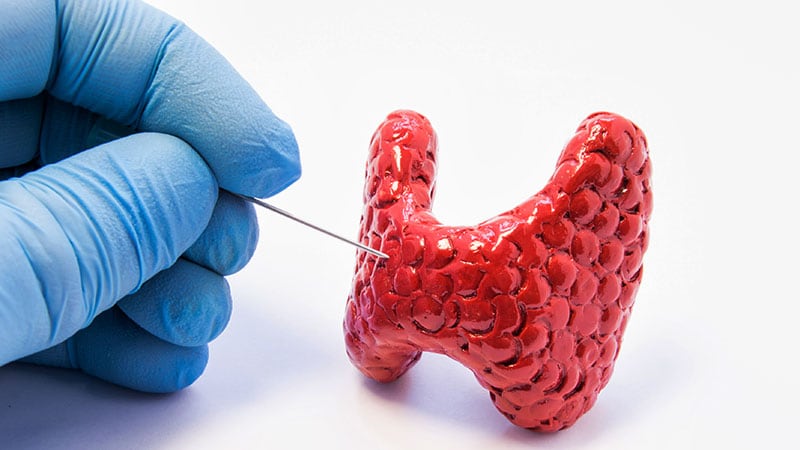Holding Blood Thinners During Thyroid Nodule Biopsy: Safety and Efficacy Analysis
The routine practice of holding blood-thinning medications during ultrasound-guided thyroid nodule fine needle aspiration (FNA) biopsies is examined for its safety and efficacy. Experts suggest individualized decision-making. Key concerns include hematoma risk and nondiagnostic results. A retrospective study of 2945 patients undergoing 4741 thyroid nodule FNAs showed no significant difference in outcomes between patients who continued blood thinners and those who had them withheld. Hematomas were rare, but thrombotic events occurred when blood thinners were withheld. Variability exists in withholding practices among clinicians. Guidelines recommend considering the balance of procedure and patient risk. Limitations include lack of data on bleeding risks for individual interventions.
Personnaliser le résumé
Réécrire avec l'IA
Générer des citations
Traduire la source
Vers une autre langue
Générer une carte mentale
à partir du contenu source
Voir la source
www.medscape.com
Hold Blood Thinners During Thyroid Nodule Biopsy?
Idées clés tirées de
by Nancy A. Mel... à www.medscape.com 10-03-2023
https://www.medscape.com/viewarticle/997047
Questions plus approfondies
